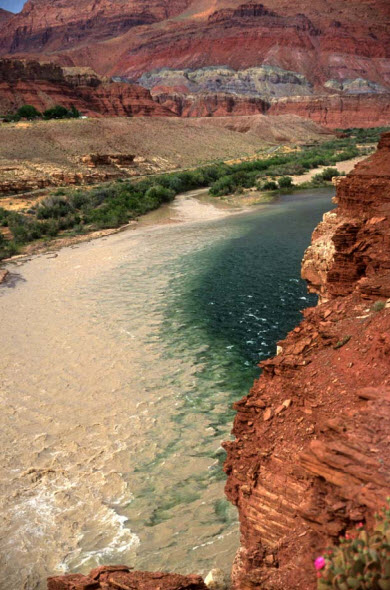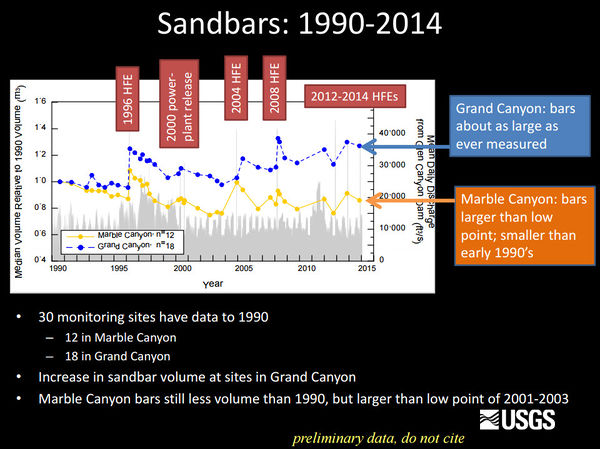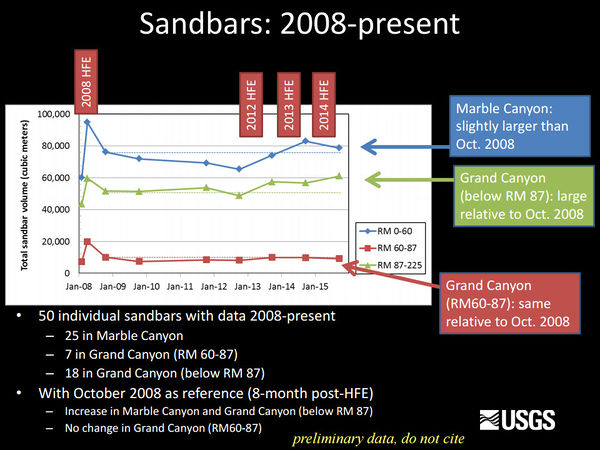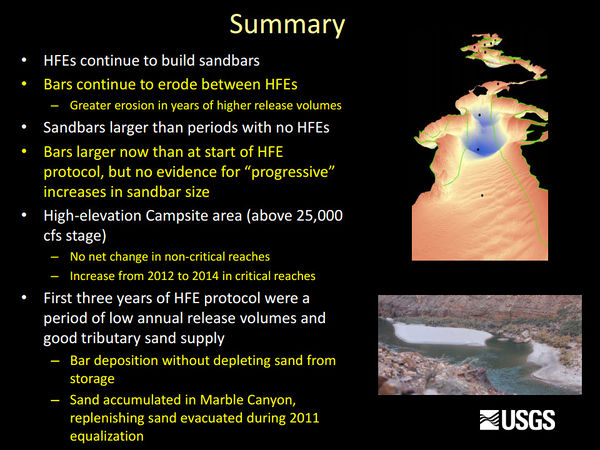Difference between revisions of "GCDAMP Sediment"
Cellsworth (Talk | contribs) |
Cellsworth (Talk | contribs) |
||
| Line 108: | Line 108: | ||
2015 | 2015 | ||
| + | *[http://www.usbr.gov/uc/rm/amp/twg/mtgs/15jun11/Attach_02,.pdf '''GCMRC Science Update'''] | ||
*[https://drive.google.com/file/d/0BwY-Z2c3NTUGQURtV2s3eWJqRHM/view '''Updates on 2014 HFE, Paria sediment inputs, and sediment mass balance'''] | *[https://drive.google.com/file/d/0BwY-Z2c3NTUGQURtV2s3eWJqRHM/view '''Updates on 2014 HFE, Paria sediment inputs, and sediment mass balance'''] | ||
*[http://repository.asu.edu/items/30069 Alvarez, L.V. (2015) Turbulence, Sediment Transport, Erosion, and Sandbar Beach Failure Processes in Grand Canyon. Ph.D. Dissertation, Arizona State University, Tempe, AZ, 176pp.] | *[http://repository.asu.edu/items/30069 Alvarez, L.V. (2015) Turbulence, Sediment Transport, Erosion, and Sandbar Beach Failure Processes in Grand Canyon. Ph.D. Dissertation, Arizona State University, Tempe, AZ, 176pp.] | ||
Revision as of 09:52, 3 June 2016
|
|
Erosion of sandbars (beaches) along the Colorado River in Grand Canyon was first reported in the early 1970s, approximately 10 years after completion of Glen Canyon Dam. Since then, scientific studies have been conducted to monitor changes in sandbars and changes in the amount of sand stored on the bed of the river. One of the outcomes of these studies has been the implementation of flow experiments intended to rebuild eroded sandbars, especially by the release of controlled floods, also called “high-flow experiments,” from Glen Canyon Dam. The sediment and geomorphology projects at Grand Canyon Monitoring and Research Center include the collection and processing of data to provide information needed to conduct controlled floods and to evaluate the outcome of each controlled flood and the long-term effects of controlled floods and normal dam operations on sediment-related resources. Desired Future Condition: |
| --- |
--- |
--- |
|---|



